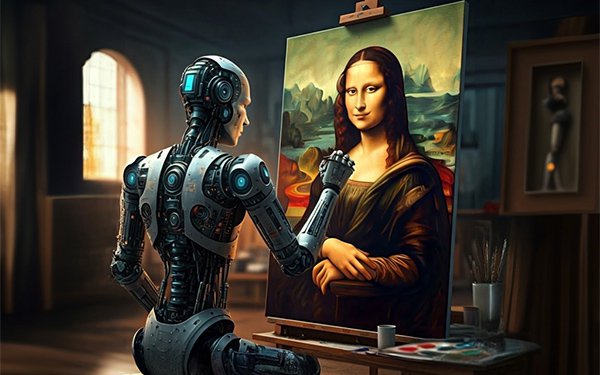
Art generated by AI without human input cannot be
copyrighted under U.S. law, a federal appeals court in Washington, D.C. confirmed.
The U.S. Court of Appeals for the District of Columbia Circuit with the U.S. Copyright Office referred to an image created by Stephen Thaler's AI system DABUS,
short for Device for the Autonomous Bootstrapping of Unified Sentience.
The AI system was the subject of patent applications where the system was named as the inventor, sparking
debate whether AI can be an inventor. The court said the system is not entitled to copyright protection, and that only works from or with human authors can be copyrighted.
The news is
somewhat baffling, since all AI content must begin with a prompt.
advertisement
advertisement
The same goes for
music. Suno, part of Amazon’s Alexa Plus, an AI song-generation platform, put the company in a copyright battle despite having to enter a text prompt.
When someone enters a text
prompt with Suno, a song is generated and is played. Suno is being sued for ingesting copyrighted material. The parties in the suit include major labels and the RIAA.
The songs are unique, but some of the material sounds
similar to other songs like “Johnny B. Goode,” “Great Balls of Fire,” and Jason Derulo’s habit
of singing his own name, according to one report.
The report questions whether a similar work is intended to replace the original.
In 2023, the Supreme Court found that Andy Warhol had infringed on photographer Lynn
Goldsmith’s copyright when he screen-printed one of her pictures of Prince.
This is likely why Google and AI are
pushing for Fair Use, and Hollywood is pushing the other way.
On Tuesday, more than 400 members of America's entertainment industry signed and submitted a letter to the White House in
response to recent submissions from OpenAI and Google claiming that U.S. law should allow AI companies to train their programs on copyrighted works without the permission or compensation to copyright
owners.
The White House Office of Science and Technology (OSTP) received the letter related to the U.S. AI Action Plan initiated by the Trump administration. It will put policies in place to
advance America's position as "an AI powerhouse."
There must be some sort of protection to content, according to the group representing cinematographers, directors, producers, actors, writers,
studios, production companies, musicians, composers, costume, sound and production designers, editors, gaffers, union and Academy Members, and other industrious, creative content professionals.